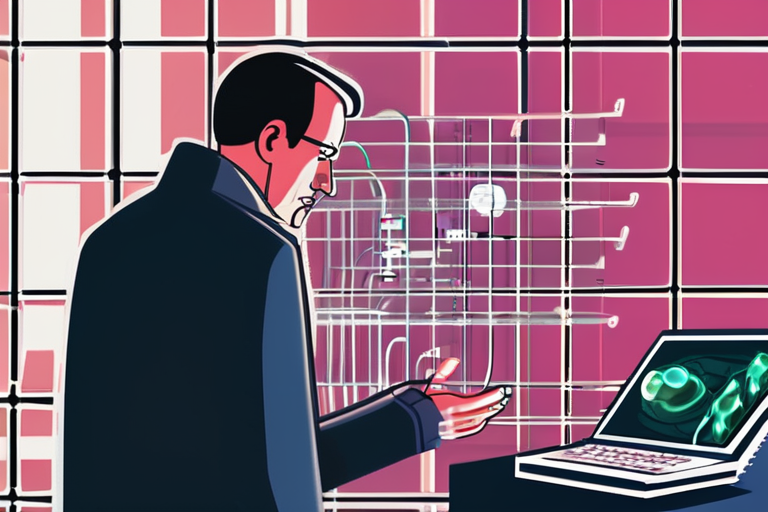The Quantum Lie Detector: Unmasking the Truth of Quantum Mechanics
Imagine a world where lies are impossible to tell. Where deceit is detected with unerring accuracy, and trust is built on solid foundations. Sounds like science fiction? Think again. Physicists have just cracked the code to creating a quantum lie detector – a machine that can prove whether a large quantum system truly behaves according to the bizarre rules of quantum mechanics.
In a breakthrough study published in October 2025, an international team of researchers from Leiden, Beijing, and Hangzhou successfully tested Bell's theorem on systems with up to 73 qubits (quantum bits). This monumental achievement has far-reaching implications for the development of secure communication, stronger quantum algorithms, and our understanding of the fundamental laws of physics.
The Bells Test: A Quantum Lie Detector
John Bell, a renowned physicist, first proposed his eponymous theorem in the 1960s. It's a simple yet profound idea: if a system is truly quantum, it should exhibit correlations that cannot be explained by classical physics. Think of it as a lie detector test for quantum systems.
Imagine two friends, Alice and Bob, who share a secret. If they're using a classical communication channel, their conversations will be predictable and follow the laws of probability. But if they're using a quantum system, their interactions become entangled – connected in a way that's impossible to replicate classically. Bell's theorem says that if this entanglement is genuine, it should manifest as correlations between measurements made on different parts of the system.
The researchers used a 73-qubit system, an enormous leap from previous experiments that typically involved just a few qubits. This behemoth of a quantum computer was designed to mimic real-world scenarios, where quantum systems are often noisy and prone to errors.
A Quantum Computer's Secret
Dr. Xiaoming Zhang, lead author of the study, explained the significance of their findings: "Our results show that large-scale quantum systems truly follow the principles of quantum mechanics. This is a major breakthrough for the development of secure communication protocols and stronger quantum algorithms."
But what does this mean in practical terms? Imagine a future where encrypted data is transmitted over long distances using quantum-secured channels. Hackers would be unable to intercept or decode the information, as any attempt to eavesdrop would introduce errors that would be detectable by the quantum lie detector.
Implications for Society
The implications of this discovery are far-reaching and profound. Secure communication is a pressing concern in today's digital age, where data breaches and cyber attacks are becoming increasingly common. Quantum-secured channels could revolutionize the way we transmit sensitive information – from financial transactions to military communications.
Moreover, the development of stronger quantum algorithms will have a significant impact on fields like materials science, chemistry, and optimization problems. These algorithms can simulate complex systems with unprecedented accuracy, leading to breakthroughs in areas like drug discovery and climate modeling.
A New Era for Quantum Research
The creation of a quantum lie detector has opened doors to new avenues of research. As scientists continue to push the boundaries of what's possible with large-scale quantum systems, we can expect even more innovative applications to emerge.
Dr. Zhang's team is already working on scaling up their experiment to larger qubit counts and exploring new types of quantum correlations. The future of quantum research has never looked brighter – or more promising.
In conclusion, the quantum lie detector is not just a tool for detecting lies; it's a testament to human ingenuity and our boundless curiosity about the workings of the universe. As we continue to unravel the mysteries of quantum mechanics, we may just uncover secrets that will change the course of history.
*Based on reporting by Sciencedaily.*



 Hoppi
Hoppi

 Hoppi
Hoppi

 Hoppi
Hoppi

 Hoppi
Hoppi

 Hoppi
Hoppi

 Hoppi
Hoppi











